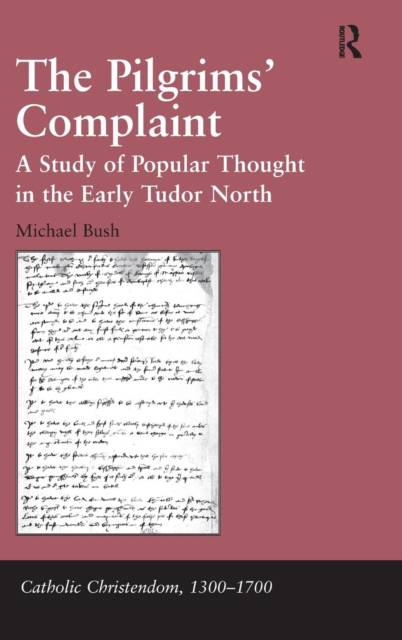
- Retrait gratuit dans votre magasin Club
- 7.000.000 titres dans notre catalogue
- Payer en toute sécurité
- Toujours un magasin près de chez vous
- Retrait gratuit dans votre magasin Club
- 7.000.0000 titres dans notre catalogue
- Payer en toute sécurité
- Toujours un magasin près de chez vous
290,45 €
+ 580 points
Format
Description
The Pilgrimage of Grace, a popular uprising in the north of England against Henry VIII's religious policies, has long been recognised as a crucial point in the fortunes of the English Reformation. Historians have long debated the motives of the rebels and what effects they had on government policy. In this new study, however, Michael Bush takes a fresh approach, examining the wealth of textual evidence left by the pilgrimage of grace to reconstruct the wider social, political and religious attitudes of northern society in the early Tudor period. More than simply a reassessment of the events of October 1536, the book examines the mass of surviving evidence - the rebels' proclamations, rumour-mongering bills, oaths, manifestos, petitions, songs, prophetic rhymes, eye-witness accounts and confessions - in order to illuminate and explore the kind of grass-roots feelings that are often so hard to pin down. He concludes that the evidence points to a much more complex situation than has often been assumed, revealing much more than simply a desire for the country to return to the old religion and familiar ways. Rather, this book demonstrates how the rebels sought to use the language of custom and tradition to bolster their own political and economic positions in a rapidly changing world. It reveals a populace at once conservative and radical, able to judge innovation and change in relation to its own benefit and ultimately able to advance a coherent programme of reform. Whilst this programme was carefully couched in language supportive of the traditional orderly society, it nevertheless carried within it more radical proposals, which proved extremely challenging to the monarchy, government and church, who eventually closed ranks to bring the uprising to an end. As both an exploration of the causes and aims of the pilgrimage of grace, and the wider religious, social and political attitudes of northern England, this book has much to offer the student of the period.
Spécifications
Parties prenantes
- Auteur(s) :
- Editeur:
Contenu
- Nombre de pages :
- 322
- Langue:
- Anglais
- Collection :
Caractéristiques
- EAN:
- 9780754667858
- Date de parution :
- 12-08-09
- Format:
- Livre relié
- Format numérique:
- Genaaid
- Dimensions :
- 156 mm x 234 mm
- Poids :
- 630 g

Les avis
Nous publions uniquement les avis qui respectent les conditions requises. Consultez nos conditions pour les avis.






